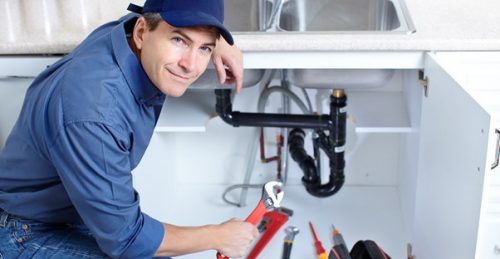A plumber is a professional who installs, repairs, and replaces pipes in buildings. Plumbers typically have an education in plumbing, and their apprenticeship combines classroom study with on-the-job training. They are paid by the hour on job sites, starting at 50% of the hourly wage of a journey person. Their wages tend to increase during their apprenticeship. As a plumber, you can expect to make a good living. Here are some benefits of becoming a plumber.
A plumbing career involves installing water, sewage, and drainage systems. Plumbers also install, repair, and maintain pipes and other plumbing equipment used for water distribution, waste water disposal, and venting. Plumbing jobs range from simple repair jobs to major construction projects like installing water lines for new buildings to complex renovation projects that involve repairing old pipes. Depending on the size of the job, a plumber may be expected to travel throughout a region, working on various projects.
As a plumber, you’ll be expected to troubleshoot plumbing problems and provide realistic solutions. You’ll need to be able to communicate with business owners, material suppliers, homeowners, and assistants. You’ll be required to think quickly and rationally about plumbing projects. While formal education is not required, some companies do prefer candidates with a higher education. Regardless of your level of education, you’ll need to be able to read blueprints and understand technical drawings. You’ll also need to be physically fit for a plumber’s job.
Apprenticeship programs are required in most states. Apprentices typically complete an apprenticeship program, which may last four to five years. After completing this program, they’ll be able to take the state licensing exam, which will allow them to work as an independent plumber. Once you’ve completed an apprenticeship program, you’ll be a journeyman. You’ll need a high school diploma and reasonable math skills to join an apprenticeship program. If you pass the exam, you’ll become a licensed plumber.
Plumbing licenses vary state-to-state. Plumbers in New Mexico must obtain a state license. These are awarded by the Department of Professional and Occupational Regulation. To obtain a license, you must have an apprenticeship for at least two years. You can also obtain your license by completing a plumbing course. As a journeyman, you must complete the apprenticeship under the supervision of a licensed master plumber in the U.S. You must have a minimum of two years of experience to become a master plumber.
In South Dakota, you can apply for your plumber license by completing a secondary school apprenticeship program. This program is open to high school graduates, and most states require that you’re at least 16 years old to apply. After passing the exam, you can begin working for yourself on single-family dwellings. To become a journeyman plumber, you must complete four years of apprenticeship and 1,900 hours of work per year. Military experience can count as one year of on-the-job training. The licensing exam is based on experience and education.
In Tennessee, you must obtain a license as a plumber. You can obtain a license from the Department of Business and Professional Regulation (DBR) or the Residential Builders Commission in order to practice plumbing in the state. For commercial work, you can obtain a dual license or a limited license, which allows you to perform plumbing services in both residential and commercial locations. Additionally, you can acquire a special license for residential plumbing, which allows you to install water and gas piping systems and work on sewage treatment systems.
